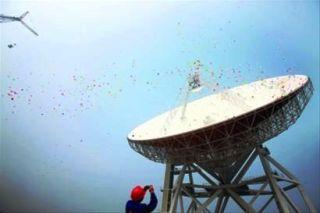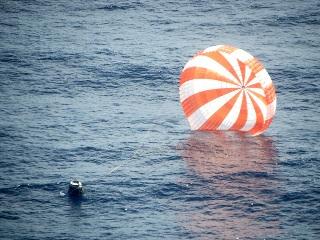
BEIJING (PTI): China has unveiled Asia's biggest radio telescope to be used in collecting accurate data from satellites and space probes.
The 65 meter diameter telescope was unveiled at the foot of Sheshan Mountain in Shanghai on Sunday.
The sprawling telescope with the size of about 10 basketball courts can pick up eight different frequency bands and also track Earth satellites, lunar exploration satellites and deep space probes, official media here reported.
"We hope that the new radio telescope will go into operation earlier so that we can use it to observe the unmanned lunar probe Chang'e-2," Wu Weiren, chief designer of the lunar orbiter project said.
The telescope will be used for Very Long Baseline Interferometry (VLBI), a type of astronomical interferometry used in radio astronomy, as it can collect accurate data and increase its angular resolution during astronomical observation, state run Xinhua reported.
China's VLBI system is made up of four telescopes in the cities of Shanghai, Beijing, Kunming, Urumqi, respectively, as well as a data centre in Shanghai.
Radio telescopes differ from optical ones in that they use radio antennae to track and collect data from satellites and space probes.
The first radio antenna used to identify astronomical radio sources was built by American radio engineer Karl Guthe Jansky, an engineer with Bell Telephone Laboratories, in the early 1930s.
 Previous Article
Previous Article Next Article
Next Article













The Indian Air Force, in its flight trials evaluation report submitted before the Defence Ministry l..
view articleAn insight into the Medium Multi-Role Combat Aircraft competition...
view articleSky enthusiasts can now spot the International Space Station (ISS) commanded by Indian-American astr..
view article